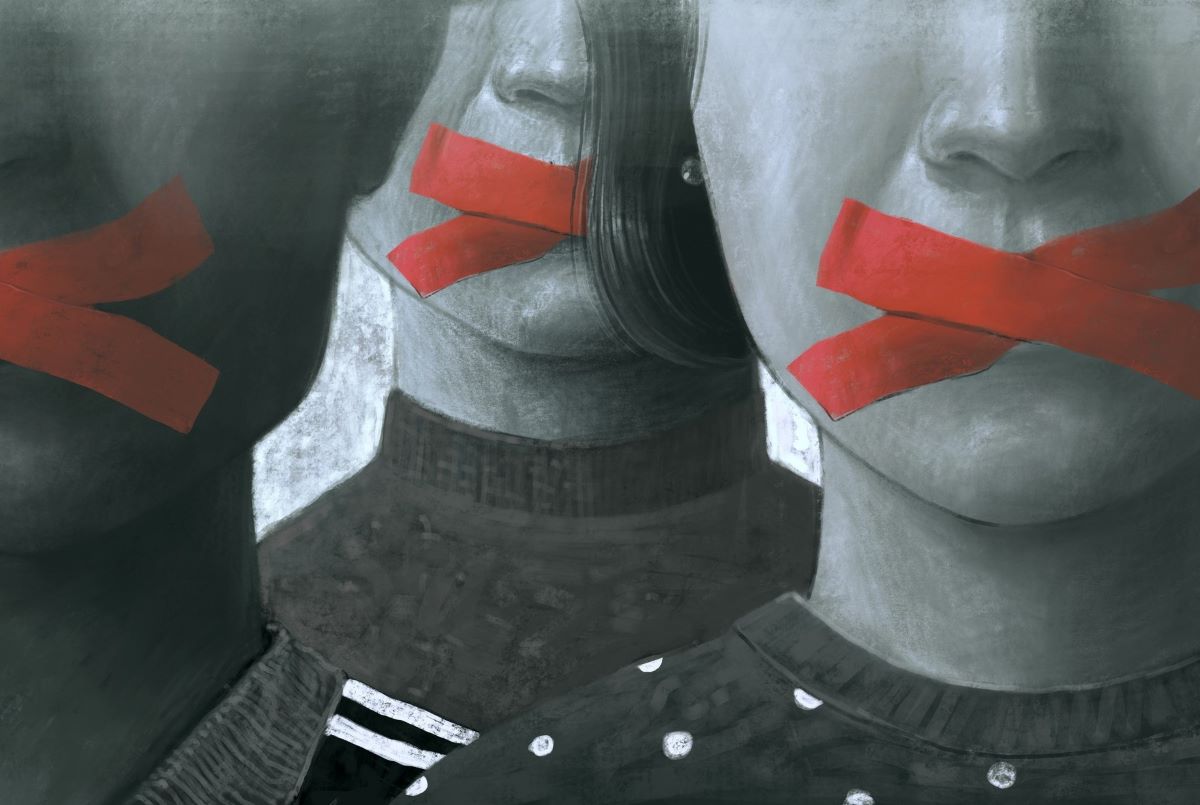
Photo: Jorm Sangsorn/iStock
A cultural revolution in the arts
Co-Founder of Freedom in the Arts, Rosie Kay, thinks the arts in the UK have strayed into a culture of intolerance, which has led to cancellation and a climate of self-censorship that has to be addressed.
There is a cultural revolution in the arts that we need to talk about. We’ve got issues.
There is a shifting set of ideological beliefs that anyone working in the arts must appear to adhere to and be careful to never dare to question. Dogmatic theories surround new subject matter, which sees the articulation of Martin Luther King's ‘colour blind’ stance as racist, the fact that humans cannot change sex as transphobic, and ‘privilege’ needs to be rebalanced as measured by a system of oppression measures that include immutable factors.
If you step outside this set of dogmas, you could be targeted; examples will be made. A few brave souls have spoken out, or been outed as ‘heretics’, and while this has helped create a small, mostly anonymous pushback in the arts, public denouncements have served as an example and deterrent to all.
This is the chilly, censorious atmosphere Denise Fahmy and I encountered, first personally, and then as a new support organisation for artists. We set up Freedom in the Arts (FITA) last year with three key aims: to protect all artists; to protect freedom of expression; and to help arts organisations navigate this difficult time and support them to uphold their core values of freedom and impartiality.
Personal cancellations
The background to these personal cancellations, each one a personal tragedy, has been an unprecedented difficult time for the arts. Post Covid, most arts organisations have endured significant financial challenges, staffing issues, shrinking profit margins and either non-returning audiences, or audiences with radically changed social habits.
This new risky economic reality has strained what was once the warm collaborative relationship between partners, venues and artists, not helped by a generation of ‘artist activists’ pursuing politics in the workplace rather than artistic excellence.
In the face of this new arts landscape, funders and stakeholders have first stalled, seemingly paralysed by the risk of staff acrimony or an online pile-on, and then muddied the waters with a complex new reputational risk register.
Leaked Police Scotland staff guidance regarding the new Hate Crime Act used our sector, the example of a performing comedian or actor, as potential instances of inciting hate, a crime now liable to up to seven years in prison.
On top of this, a government seemingly not quite at the controls, and without any kind of obvious understanding of the arts sector, has entrenched the arts in a widening political divide across the country.
Future no-go areas
No wonder the arts is not the place of playful curiosity, buoyant exploration, or experimental and fruitful new directions that I have experienced in my career in more confident and creative times.
Producers and programmers of new work need to be mindful of the current and possibly future no-go areas. Where once it was celebrated if an artist such as Lloyd Newson of DV8 explored homophobia in Islam, iconoclasm is harder to find today.
Sex and gender? Certainly a no. Trans activists could target any production by a woman who holds or expresses gender critical beliefs. Be very careful around race or disability, cultural appropriation versus homage is tricky, climate change is possibly welcome (but certainly no climate deniers) and Brexit is one viewpoint only. The problem for next year’s programme is who knows where the next verboten subject will come from?
At FITA we have been busy meeting creatives, bringing diverse artists and art leaders together and discussing the issues in a Chatham House-style forum, with the promise that no one will be cancelled and all viewpoints are welcome. We have built relationships in the media, politics and the wider arts networks. Where we can, we contribute to the debate around artistic freedom in the press.
What needs to be done?
We need to acknowledge that the arts in the UK has strayed into intolerance. This has led to cancellation and an insidious climate of self-censorship. At FITA we have so many case studies of artists’ cancellations across England, Wales, Scotland and Northern Ireland, we could write the playbook.
The effect on these individuals is huge. These people have often dedicated their lives to their craft and have little wealth to fall back on. The loss of livelihood threatens family security, while an attacked reputation can be devastating, especially for beliefs that may be integral to the artist’s work.
If artists are silenced, we risk losing a generation of talent, as well as deterring new, unique voices from joining the profession. We must avoid realising a conformist arts sector, where beliefs may be policed by colleagues or bureaucracies. To reflect the breadth of artistic talent in the UK, FITA aims to a support the arts to properly commit to artistic freedom with the mechanisms and confidence to actively protect it.
We need to nurture excellence, which takes time and effort, and look for more than just the Instagram slogan of the week. We can respect our artistic history while responding to the present. Finally, could we please stop posturing, stop pretending, stop being empathic and earnest and try instead to embody values of discipline, integrity and impartiality.
Instead of safe spaces, let us now have brave spaces.
Rosie Kay is Co-Founder of Freedom in the Arts.
![]() freedominthearts.com
freedominthearts.com
![]() @Freedom_in_Arts
@Freedom_in_Arts
You can sign FITA's open letter here.
Join the Discussion
You must be logged in to post a comment.